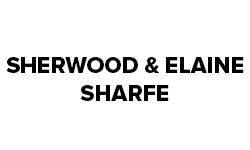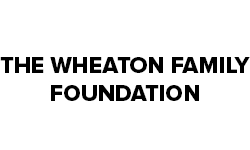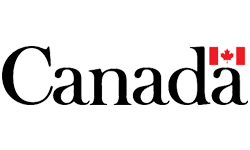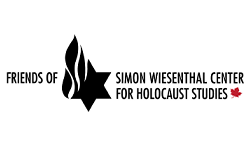Part C: Engaged Citizens Resources
LESSON RESOURCES
- Office of the Treaty Commissioner – www.otc.ca
- Teaching Kids News. teachkidsnews.com
- Take Action- Make a Difference: A Social Studies Handbook, Harding, J Craig, Alan Sears, Pearson pp 20-21
- Take Action! A Guide to Active Citizenship: How to change the world. Kielburger, Craig. Pages 145-152.
- Saskatchewan Social Studies 5 – Pearson, 2014.
- How Canadians Govern Themselves – http://www.parl.gc.ca/About/Parliament/SenatorEugeneForsey/Home/Index-e.html
- Levels of Government Responsibility – http://www.parl.gc.ca/about/parliament/senatoreugeneforsey/touchpoints/index-e.html
- Our Country Our Parliament – http://www.parl.gc.ca/About/Parliament/Education/OurCountryOurParliament/pdfs/Booklet-e.pdf
- Virtual Museum of Canada – http://www.museevirtuel-virtualmuseum.ca/index-eng.jsp – Discover arts, science and Canadian history via entertaining and diverse multimedia museum web productions.
- Back to Batoche – http://www.museevirtuel-virtualmuseum.ca/sgc-cms/expositions-exhibitions/batoche/html/about/index.php
- First Nations Governance – http://fngovernance.org/publication_docs/Five_Pillars_CFNG.pdf
- Métis Nation of Saskatchewan- http://www.mn-s.ca/
- Métis National Council- http://www.metisnation.ca/
- Eagle Feather News Back Issues – http://www.eaglefeathernews.com/archive/
- Laws of the Buffalo Hunt- http://www.metismuseum.ca/media/document.php/00716.VM%20-%20Bison%20Hunting.pdf
- Canada’s Democracy – Elementary Education Guide
- http://www.democracy-democratie.ca/res/edres/lps/elp-01_e.pdf
- CD Video: Lisa Visits the Legislative
- Speaker Outreach Program- https://www.legassembly.sk.ca/about/role-of-the-speaker/outreach/ Arrange for the Speaker to come to the classroom to do a mock assembly with students
- From Far Away by Robert Munsch
- Vocabulary – www.vocabulary.com
Push Pull Factors
- https://web.archive.org/web/20160506141218/http://www.creatingcanada.ca/demo/Unit_Two/unit_two_Ch7_ex.html
- http://www.heinzhistorycenter.org/files/Healthy_Heritage_Cooking_LESSON_PLAN_Push_and_Pull_Factors_of_Immigration.pdf
Settling of Canada
- Discover Canada: The Rights and Responsibilities of Citizenship http://www.cic.gc.ca/english/pdf/pub/discover.pdf
- http://www.cic.gc.ca/english/resources/publications/discover/index.asp
- https://web.archive.org/web/20150325233931/http://www.canadiana.ca/citm/index_e.html – Canada in the Making
- http://www.collectionscanada.gc.ca/settlement/kids/index-e.html – Kid’s Site of Canadian Settlement
- http://www.civilization.ca/exhibitions/online-exhibitions/history – Canadian Museum of History
- Métis Laws and Regulations for the establishment of St. Laurent – http://www.metismuseum.ca/resource.php/12631
Multiculturalism
- Stats Canada Tables website – http://www.statcan.gc.ca/tables-tableaux/sum-som/l01/cst01/demo26a-eng.htm
- Canada’s Multiculturalism website – https://www.canada.ca/en/services/culture/canadian-identity-society/multiculturalism.html
- *Canadian Multiculturalism: An Inclusive Citizenship Oct. 19, 2012 https://web.archive.org/web/20170617150128/http://www.cic.gc.ca/english/multiculturalism/citizenship.asp – This text was retrieved from the Government of Canada webpage using Internet Archive WayBack Machine. The reproduction of this text has not been produced in affiliation with, or with the endorsement of, the Government of Canada.*
- Canadian Museum of Immigration at Pier 21 – http://www.pier21.ca/home/
CROSS CURRICULAR CONNECTIONS
Language Arts
Themes
- Personal and Philosophical: Students will:
- believe in their own self-worth and feel that they have control over the things that happen to them;
- look inward and focus on self-image and self-esteem; and,
- reflect on self and life, and on their beliefs and values and those of their society.
- Social, Cultural, and Historical: Students will:
- look outward and examine their relationships with others, their community, and the world;
- consider the social and historical context;
- explore their connections in families, schools, groups, and communities to understand the diverse needs and wants of others; and,
- show concern for other people in their relationships, groups, and communities.
- Communicative: Students will:
- consider the role of communication in their lives and the technologies and strategies that help people become effective communicators; and,
- practice the skills to interact effectively with others.
Treaty Education
- TR5: Examine the concepts of colonization and decolonization and analyze their effects.
- SI5: Analyze how symbols used by treaty signatories contributed to the treaty making process.
- HC5: Analyze the concept of self-government as it applies to First Nation and Métis people.
- TPP5: Analyze the benefits of treaties for all people in Saskatchewan from a contemporary perspective.
Health
Understanding, Skills, and Confidences (USC)
- USC5.5 Analyze the impact of violence and the cycle of abuse on the holistic well-being of self, family, and community.
- USC5.6 Assess peer influence and demonstrate a readiness to prevent and/or avoid potentially dangerous situations involving peer pressure (including lying, substance use, and bullying).
- USC5.7 Assess the importance of self-regulation and taking responsibility for one’s actions.
Science
Life Science: Human Body Systems (HB)
- HB5.1 Analyze personal and societal requirements for, and the impact of, maintaining a healthy human body. [CP, DM]
Physical Science: Properties and Changes of Materials (MC)
- MC5.3 Assess how the production, use, and disposal of raw materials and manufactured products affects self, society, and the environment. [DM, SI]
Physical Science: Forces and Simple Machines (FM)
- FM5.3 Assess how natural and man-made forces and simple machines affect individuals, society, and the environment. [CP, DM, SI]
Earth and Space Science: Weather (WE)
- WE5.3 Analyze the impact of weather on society and the environment, including technologis that help humans address weather conditions. [DM]
FURTHER INVESTIGATION SUGGESTIONS
- Have students research how to appropriately welcome a newcomer to their school. Possible sources of information might include: school principal, school council, older students, elders, Open Door Society members. Have the principal talk to the students about what happens in the office when new students arrive at the school.
- Decide as a class or in small groups, the support systems students can provide for new classmates.
- Below are some suggestions for small group projects:
- Make a class welcome pamphlet with everyone’s picture and name.
- Create a set of simple pictures to explain daily routines.
- Examine the signs in the class/school and see if pictures would make them more easily understood.
- Raise money to create small gift bags for newcomers.
- Find out what languages are spoken by students and teachers in the school and create a resource list of speakers.” (taken from Social Action Projects: Making a Difference. K-4. Canadian Teachers’ Federation. 2010. Page 12)
- Find ways to extend the learning beyond the school, so that solutions to respectfully deal with new community situations are considered. i.e. A pamphlet showing community highlights-recreation, bus routes, shopping—using simple pictures.
- Make contact through social media with children of other cultures in other communities
- Make a video of their community that could assist a newcomer.
- Volunteer at one of the multicultural organizations.
- Tour of Legislative Building in Regina
© 2024 Concentus Citizenship Education Foundation Inc. All Rights Reserved.









